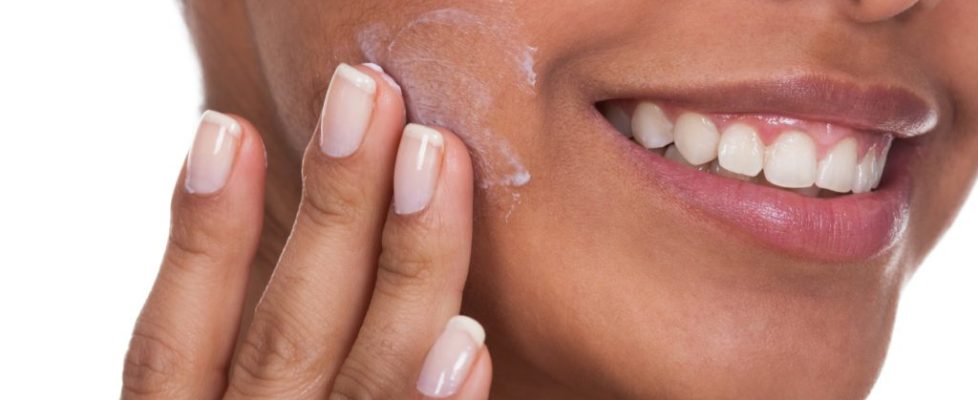Are You Using the Right Skin Care Products for Your Skin Type?
This article was submitted by Cosmetology & Spa Academy. Located in Illinois, CSA is a beauty school with over 30 years of experience in the cosmetology, esthetics and beauty industry.
It’s important to know what type of routine to use on your skin type before you start using products that are not compatible for you. Some creams and gels won’t work on everyone because they made with specific types of skin in mind. What works for one won’t work for someone else. Here, we will discuss skin types and how to properly formulate your own routine based on your individual skin type.
Many Variations of Skin Type
You should be careful of any information that you may receive from estheticians, magazines or television experts.
They all are trying to sell more products to you. You might not get the whole truth from them regarding which skin types are best suited to each product.
Starting with a base skin type of dry or oily is good, but it does not help the many other people who have more diverse ranges of skin types. Most people do not live on the extremes of oily or dry skin.
People tend to fall in between these extremes. Think about all of the people who suffer from acne, eczema, rosacea and sun damage. Their skin types don’t fall within the rigid categories of oily and dry.
Don’t forget about how skin types can change! Hormones, environmental and biological stresses and even weather can affect your skin. You will need to find the right formulation for your individual skin type.
Educating yourself about the nuances of each skin type is the first step to finding the right treatment for you. You can learn the intricacies of each type of skin from an esthetics program. This way, you will know how to treat your skin when its type alters due to factors like the incorporation of a new medication, changes in your diet, picking up a smoking habit, hormonal changes, sun exposure etc.
Some Skincare Products May Cause Problems
You should be aware that certain skincare products can actually make your skin worse. Lots of products are formulated to treat just one specific skin type. Some of these will contain ingredients that will irritate other skin types and produce a brand new problem for you.
A lot of people have never been able to properly determine their actual skin type because products they have been using had ingredients that cause problems related that they thought were natural to their skin type.
Be sure to carefully read the ingredients list on your skin products to see what you are really applying to your face and body. Try out products slowly to see how they react and behave with your skin before making any drastic changes or additions to your routine. Beware of troublesome ingredients like thick emollients, abrasive scrubbing agents, pore clogging waxes, organic and synthetic irritants, menthol, alcohol and citrus.
Determine Your Skin Type
It is likely that your will have a combination of skin types. Oil is produced from the glands at the center of your face so you will likely have more clogged pores in this area. Start by taking a shower, applying a gentle cleanser and using a toner with antioxidants and ingredients that repair skin. Leave it alone for a couple of hours to see how your skin reacts. This will help you determine your true skin type.
- If your skin has excess oil or oily areas combined with dry areas after you’ve waited 4 hours after cleansing your skin, your skin type is “oily”.
- Those who experience moderate breakouts during hormone cycles have “acne” or “blemish-prone” skin type.
- If your skin appears flaky and tight, your skin type is “dry.”
- Those who experience redness with or without bumps but no acne likely have a “sensitive /rosacea” skin type.
- Individuals with reddish skin or dry flaky patches that itch, swell or burn have eczema.
- If you experience fine lines and/or discolorations, your skin is likely sun damaged.
- Those with lines around the cheeks, mouth and eyes have aging/wrinkled skin.
- Normal skin is characterized by no indications of dryness or oiliness.
Starting a Treatment
After figuring out what type of skin you may have, it’s time to select the right treatment and formula for your skin. Each skin type can find benefits in certain ingredients present in a wide variety of skincare solutions. Some ingredients in skincare products are meant to treat a specific skin type. For example, those who suffer from acne will need to treat their skin with benzoyl peroxide.
In general, creams, serums and lotions work best on dry skin. Liquids and gels work best on oily skin or skin that is prone to blemishes. Combination skin types can be treated with all types of skin care solutions but for powders and creams. Individuals with sensitive skin / rosacea can treat with all skincare types but for powder based solutions.
Those who suffer from aging skin with wrinkles or sun-damaged skin will be best served by avoiding liquid and powder based skincare products.
Those with normal skin often benefit the most from serums and light lotions but they can use just about any type of skincare product without significant worries. It is important to point out that most people have different skin types on the face. Therefore, it is prudent to use specific skincare products in each unique section of the face as appropriate.



